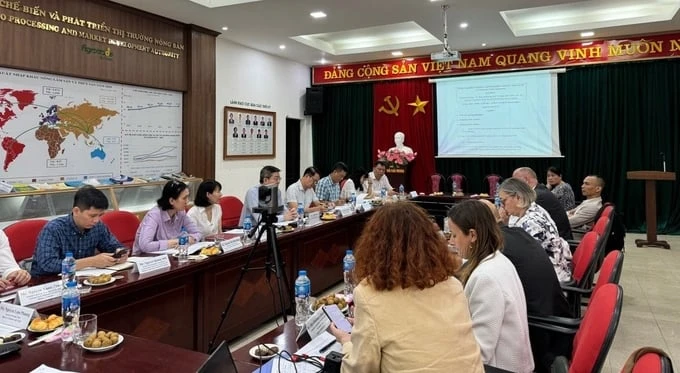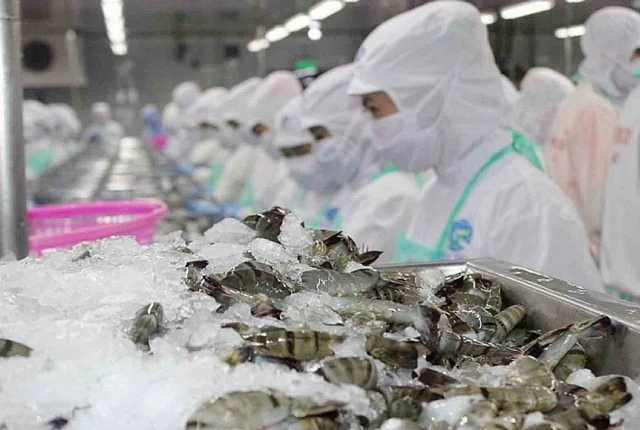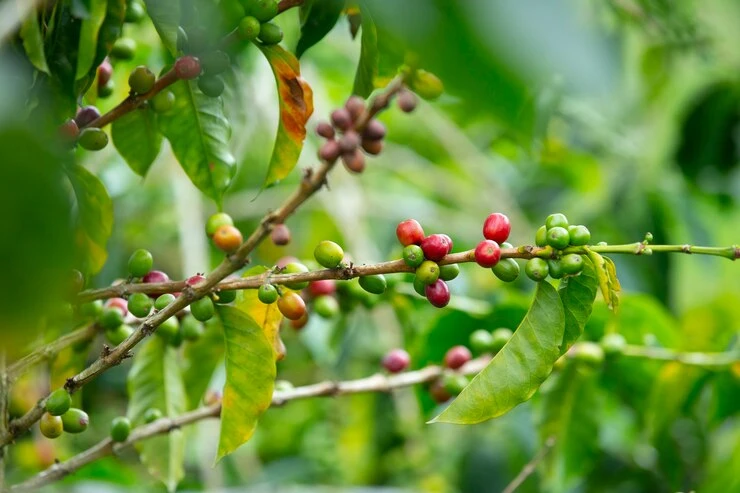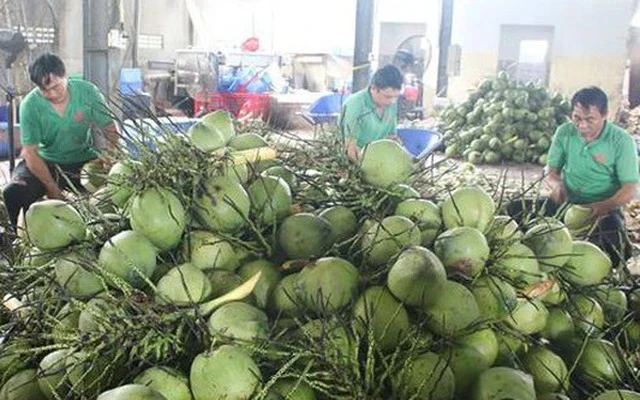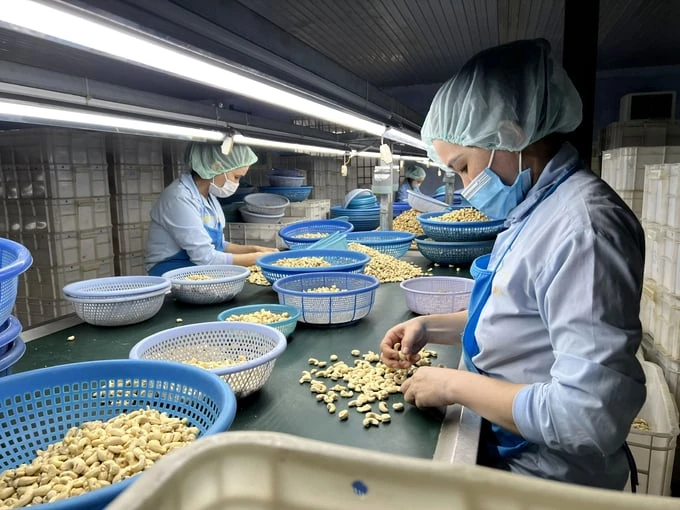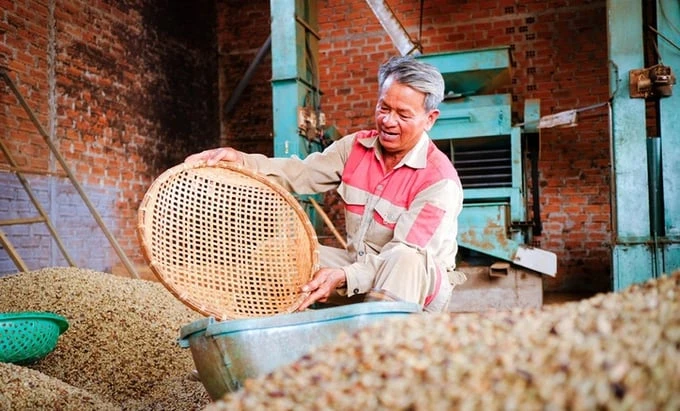(VAN) Synthetic products such as Vietnamese beef noodle soup are governed by new Regulations (EC) 2022/2292, requiring public and transparent information about origin and establishments producing.
Vietnamese beef noodle soup, or "pho," is a beloved traditional dish internationally. While dried packaged pho has been exported to the EU for years, it lacks the freshness and true flavor of the authentic dish. Mr. Renzo Moro, an expert at the Italian Embassy, expressed interest in when European friends could enjoy authentic pho, highlighting its unique Vietnamese flavor and rich ingredients.
Regulation (EC) 2022/2292, effective from December 15, 2022, introduced new regulations on composite products (ComP), affecting pho. Previously, products like pho were categorized based on the ratio of processed products of animal origin (PPOAO). However, under the new regulation, any food containing both plant and processed animal origin products falls under ComP.
Mrs. Sylvie Coulon, a senior expert of DG SANTE, explained that the EU now subjects such products to stricter regulations due to increased risks of disease outbreaks from processed animal origin products. The distinction between composite products and processed animal origin products is crucial for compliance with EU regulations on hygiene and food safety.
In addition to pho, Mrs. Coulon provides examples of fresh salmon tartare, fresh chicken skewers with pepper, and sushi, which are not considered composite products (ComP).
To determine if a product is classified as ComP, four questions must be answered: Are there processed products of animal origin? Have animal origin ingredients been processed? Does the product contain ingredients of plant origin that alter the properties of animal origin ingredients?
Regulation (EC) 2022/2292 categorizes ComP into three levels based on risk level, ranging from non-shelf-stable to shelf-stable products containing colostrum-based products, milk, processed seafood, meat, or eggs.
Regarding pho, Vietnam currently complies with Regulation (EC) 853/2004, which limits ingredients to processed meat only and excludes processed meat. Thus, under existing conditions, Vietnam cannot export pho to Europe.
Need to be sure and understand the regulations
"How can pho be exported?" Mrs. Coulon continued to inquire. According to the DG SANTE representative, Vietnam's classification by the EU under Regulation (EU) 2021/404, due to effective regulation, planning, and monitoring of seafood and honey products, permits the export of composite products (ComP) to the EU.
However, determining which products can be exported, the origin of raw materials, and the standards establishments must meet for production remain unresolved issues.
Regulation (EC) 2022/2292 delineates the regulations concerning food imported into the EU, particularly emphasizing the processing of animal-origin ingredients in composite products (ComP). All such ingredients must originate from establishments approved by the EU and countries authorized to export ComP to the EU.
Regarding production establishments, those already approved by the EU under previous regulations on processed products of animal origin (PPOAO), like Regulation (EC) 853/2004, and involved in further processing (e.g., cooking biscuits using egg products) are registered in the system. If additional processing of PPOAO is conducted independently from the final ComP, establishments must submit documentation for EU assessment and approval.
At the national level, the EU categorizes countries into annexes specifying which products they can export to the EU. For example, Vietnam, under Regulation (EU) 2021/405, is permitted to export seafood and processed meat but not products derived from milk or eggs. In contrast, Thailand, listed in both Regulation (EU) 2021/405 and Regulation (EU) 2021/404, can export similar products to Vietnam's and ComP containing egg-derived ingredients.
Mrs. Coulon underscores that exporting ComP to the EU necessitates fulfilling three criteria: a qualified source of raw materials, an EU-certified production establishment, and approval from a country authorized to export the specific product. Failure to meet any of these requirements can impede exports, even with qualified raw materials.
During the conference "Disseminate regulations on the import conditions of plant and animal-derived agricultural products and foods into the EU," co-organized by DG SANTE and the Vietnam SPS, the EU delegation strongly advised businesses planning to export synthetic products to the EU to ensure strict compliance with all regulations and conditions. They emphasized the importance of consulting with management and professional agencies to fully understand and adhere to the regulations, recommending contacting DG SANTE if necessary to prevent goods from being returned or destroyed at the border.
Mrs. Coulon highlighted that the new regulations on ComP products are significant for many countries as they can enhance a country's brand and image. Despite the complexity of Regulation (EC) 2022/2292, the EU is committed to supporting every WTO member state in its implementation.
More transparent information
Expert Sylvie Coulon emphasizes the importance of transparency in information related to the assessment and handling measures for agricultural and food products, especially for exporting powerhouses like Vietnam. She suggests that increased transparency can help minimize the risks associated with products originating from animals.
The EU categorizes ComP into three groups based on risk levels, as detailed in Annex III and V of Regulation (EU) 2020/2235. These products are subject to strict control measures at EU border gates to mitigate the risk of epidemics. Depending on the specific product and exporting country, the EU may require accompanying procedures such as a food safety certificate.
Mrs. Coulon commended Vietnam's efforts in controlling and ensuring the food hygiene and safety of products exported to the EU, particularly instant noodle products. This effort serves as the basis for the EU to consider adjusting the frequency of inspections or even removing certain products from the list of controlled items.
Due to Vietnam's good compliance with EU regulations for instant noodles, the EU plans to remove this product from the list in Appendix I, which will be updated in July 2024. If there are no changes, DG SANTE will propose that Vietnamese instant noodles no longer undergo a 20% border inspection frequency when imported into the EU.
The positive signals from instant noodles, especially fiber products made from rice, are seen as a promising sign for the eventual availability of Vietnamese pho in European markets.
Dr. Le Thanh Hoa, Director of Vietnam SPS, highlighted the importance of compliance with food safety regulations in importing countries for Vietnamese agricultural and food products to gain traction internationally. He emphasized the significance of DG SANTE's recommendations and assessments, expressing hope for continued coordination to enhance the quality and transparency of Vietnamese agricultural and food products, ultimately positioning Vietnam as a key player in global cuisine.
